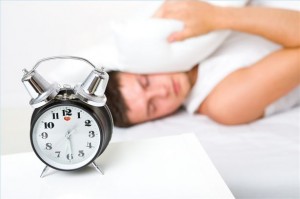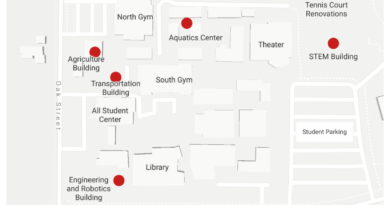HEALTH: Misaligned body clocks in teens affects school performance

By Hannah Musgrove,
HUB Correspondent–Sleep research studies have shown that high school students don’t get enough sleep due to early school start times as well as changing sleep patterns in the teenage years.
In a survey done by the National Sleep Foundation only 20 percent of high school students get the optimal nine hours of sleep per night. The majority of seniors surveyed reported getting 6.9 hours of sleep on average.
“On days I don’t get enough sleep, I just feel really tired and the whole day I just feel like ‘when is it going to be over,’” sophomore Danielle Newman said.
Often students make up for sleep deprivation on weekends by sleeping in; however, this can contribute to a shift in sleep phase and makes waking up early in the morning even more difficult.
Biological sleep patterns shift to later times for both sleeping and waking as an individual enters the teen years. With the high school’s schedule beginning at around 7:45 nearly every morning it is harder for teenage minds to function because their bodies’ biological clock prefers to be asleep.
Some students at Davis High don’t have a first period. For them, class begins at 8:55 instead of 7:45, giving about an extra hour in the mornings. “I definitely have a lot more time,” sophomore Michelle Bacigalupi said. “I feel like I can get more sleep if I was up studying the previous night, or I can go to sleep earlier the previous night and do homework in the morning.”
The high school schedule is so misaligned with the body clock of adolescents that it often leads to more sleep deprivation.
“There is a shift in the circadian pattern toward a more owl-like tendency for later bed and wake-up times,” UC Davis professor Steve Carrell said.“For example, waking up a teenager at 7 a.m. is equivalent to waking up an adult at 4 a.m.”
Chronic sleep deprivation causes daytime sleepiness, which can lead to a problem in classes of low stimulation. Lack of sleep can make an individual more prone to acne as well as illness. Sleep deprivation can cause impairment of certain brain functions such as the ability to pay attention, communication skills, problem solving, adaptive learning, increased irritability, low tolerance or frustration and increased aggressive behavior.
These side-effects of losing sleep affect sophomore Dominique Sommer. “Throughout the day I feel on edge and aggravated,” Sommer said after a night of little sleep. “It’s hard to be in a good mood when I’m tired. Sometimes I am even tense with my friends because the fatigue is too much.
“Being tired is a struggle,” Sommer said.



